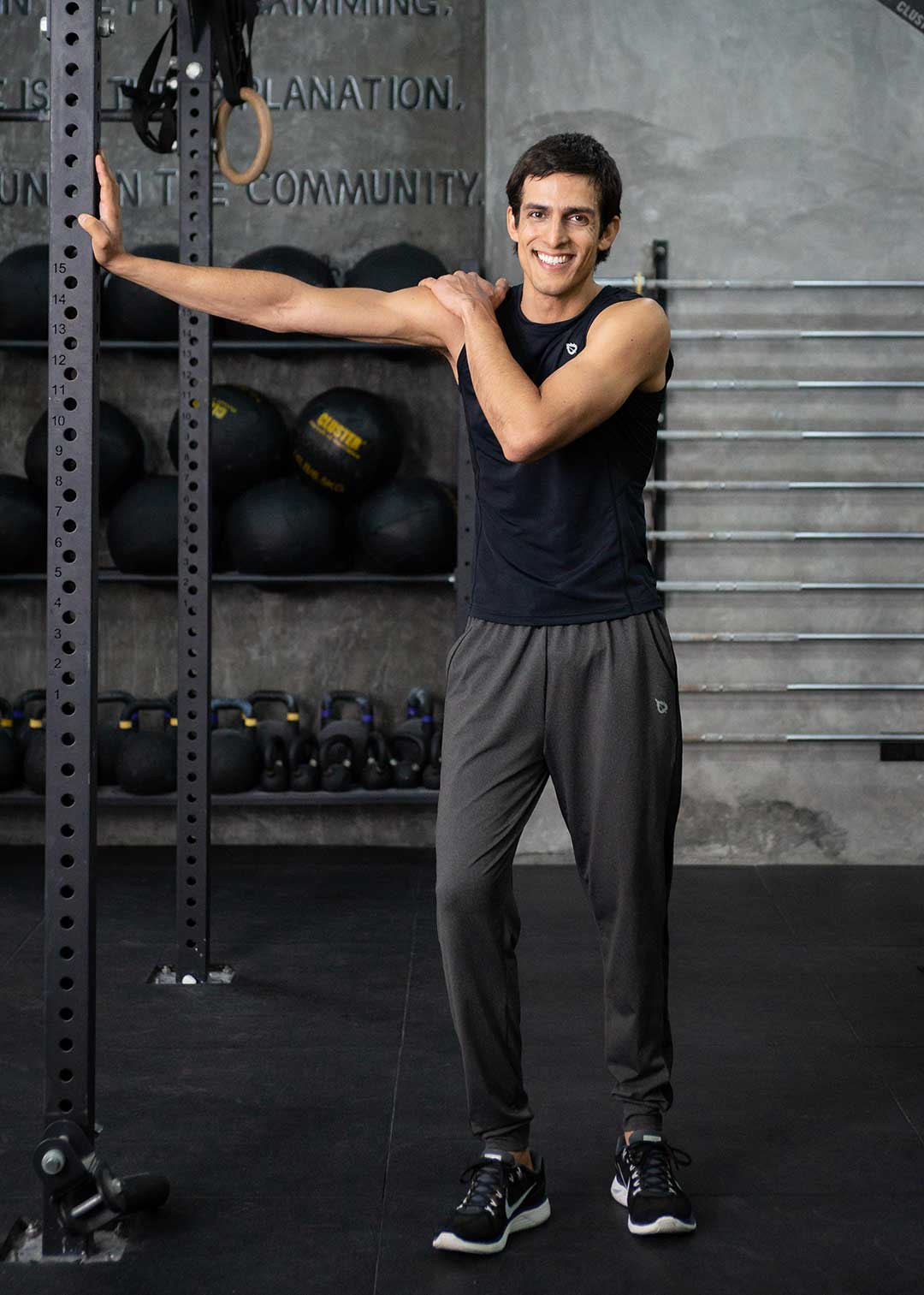Keeping active as you grow older can enhance your well-being by alleviating stress and boosting energy levels. Moreover, it serves as a shield against health issues like depression, anxiety, and chronic illnesses. If you're considering increasing your activity level, weightlifting stands out as a top choice.
Many women worry that lifting heavy weights will bulk them up, but it's improbable because women typically have 10 to 30 percent less of the hormones responsible for muscle growth. Instead, lifting heavy weights can enhance women's sense of health, strength, and confidence in various activities. Resistance training offers numerous advantages to women, ranging from feeling comfortable in their attire to handling heavy objects and managing stress effectively.
For beginners or those seeking a refresher on weightlifting techniques, this guide is designed to steer you in the right direction. We'll explore why pumping iron is the key to healthy aging and provide practical tips for embarking on this journey.
Why Women Should Lift Weights

Engaging in weightlifting offers numerous rewards for both men and women. Regardless of gender, adopting a consistent weight-training regimen can bring about significant transformations in both your physique and your mindset.
It improves muscle mass and strength.
As you focus on healthy aging, it's crucial to address sarcopenia, the age-related loss of muscle mass and strength. This process can begin as early as your 30s, with the potential to lose up to 50% of muscle mass by your 80s. Incorporating weightlifting into your fitness regimen enables your body to build and maintain strength and endurance.
By consistently lifting weights, you not only slow down the impact of sarcopenia but can also reverse it. Weightlifting induces hypertrophy, the growth of muscle fibers, which is essential for combating muscle loss. When you lift weights, you create micro-tears in your muscles. As these tears heal, your muscles become larger, stronger, and more resilient.
It enhances bone health and density.
Weightlifting is particularly beneficial for women, as it helps strengthen bones and reduce the risk of conditions like osteoporosis and fractures. By subjecting bones to stress, weightlifting stimulates them to become stronger and denser. Regular participation in weightlifting promotes improved bone density, which is essential for long-term bone health.
Moreover, weightlifting enhances joint flexibility and supports functional movement patterns, particularly valuable as individuals age. This combination of benefits underscores the importance of women incorporating weightlifting into their fitness routines for overall health and well-being.
It manages weight and improves metabolic health.
Regular weightlifting can serve as a defense against chronic conditions, such as diabetes, while also aiding in weight management. It enhances insulin sensitivity and contributes to regulating blood sugar levels, essential for warding off type 2 diabetes.
When you lift weights, it enhances insulin sensitivity similarly to how running does. Consequently, your body becomes more efficient at burning glucose, improving its insulin response. Hence, it's common to observe a decrease in blood glucose levels following exercise.
It increases mobility and flexibility.
As your muscles gain strength, you'll notice an increase in your range of motion, which is crucial for overall well-being. This improved flexibility leads to fewer aches and pains and greater mobility in your joints. Regular weightlifting fosters muscle growth and enhances muscle quality, resulting in improved mobility and physical function. This, in turn, lowers the risk of falls and injuries often associated with aging.
Additionally, stronger muscles facilitate quicker recovery from injuries. They promote blood flow, facilitating the transportation of nutrients and reducing healing times. Thus, by strengthening your muscles through weightlifting, you not only enhance your physical capabilities but also support your body's ability to heal and recover.
It helps with mental health and cognitive function.
When you engage in physical activity, your body releases endorphins, which not only induce feelings of euphoria but also alleviate pain throughout your body. With regular exercise, you'll likely experience increased energy levels, improved sleep, and a reduced susceptibility to stress.
Furthermore, weightlifting can enhance cognitive function. During exercise, your muscles release signaling molecules called myokines, which influence brain activity. Research indicates that these myokines promote better immune balance and reduce inflammation within the brain. By decreasing inflammation markers, weightlifting helps fortify your brain against diseases and improves overall brain health.
It improves heart function.
Your heart yearns for exercise, and here's the reason: When you engage in activities like weightlifting or running, it becomes more efficient for your muscles to extract oxygen from the blood. As a result, your heart doesn't need to work as hard to pump blood to the muscles. Additionally, exercise reduces the levels of stress hormones in your body. When these hormones are elevated, they can prompt your heart to pump more vigorously, leading to increased stress on the heart.
Moreover, exercise can lower both your heart rate and blood pressure. So grab those weights and start pumping as it can alleviate the burden on your heart.
Can women get big and bulky when lifting weights?

Ladies, fear not! Unlike men, we won't bulk up from strength training. Our naturally lower mass and testosterone levels, which drive muscle growth, ensure a lean physique. As we embrace weightlifting, we cultivate sleek muscles that boost metabolism, empowering us to conquer any challenge.
So grab those barbells, crank up the resistance, and embrace dumbbells and kettlebells. Strength training is about enhancing daily functionality.
Yet, for female bodybuilders, the story shifts. These determined women work closely with nutritionists to craft precise diet plans meeting their protein needs through food and supplements. Their aim? To optimize testosterone production, complementing a rigorous training routine tailored for muscle definition and strength.
Women and Lifting Weights
Before incorporating weightlifting into your workout regimen, take these factors into account:
Get a consultation first with your doctor.
If you have preexisting conditions or concerns about whether weightlifting is suitable for you, it's prudent to seek advice from your doctor before starting a gym routine. Your doctor is familiar with your medical history, medications, past injuries, and risk factors. Utilizing this knowledge, your doctor can help you assess whether weightlifting aligns with your health needs and goals.
Always observe proper form and technique.
When embarking on a weightlifting regimen, particularly as part of a focus on healthy aging, it's essential to approach it with proper guidance and technique. Seek advice from a certified professional trainer or fitness coach who can develop a personalized program suited to your objectives, capabilities, and health status. Ensuring proper form and technique is vital for safeguarding against injuries and optimizing the benefits of your weightlifting routine.
Do gradual progress to avoid injuries.
For women venturing into weightlifting, it's crucial to start with lighter weights and prioritize mastering proper technique, even if you have prior experience. As your muscles adapt and grow stronger, gradually increase the weight while remaining attentive to your body's signals. It's normal to encounter some resistance as you progress to heavier weights, but if you experience severe pain post-workout or it hinders your daily activities, you may be overexerting yourself.
Incorporating a buddy system into your weightlifting routine can be beneficial. Not only does it provide added safety, especially for exercises like bench presses or squats, but your workout partner can also offer feedback to ensure you maintain proper form and avoid excessive strain from lifting too heavy.
Include other forms of exercise for a balanced routine.
To reap the full benefits of weightlifting, it's advisable to complement it with other forms of exercise. Depending on your health status, this could involve activities, such as hiking, running, or cycling. By integrating different exercises, you engage various muscle groups that may not be targeted solely through weightlifting. Additionally, you improve endurance, fortify your cardiovascular health, and enhance flexibility.
In addition, a balanced diet rich in proteins, vitamins, and minerals can augment the effects of weightlifting, facilitating muscle recovery and growth. It's advisable to seek guidance from a personal trainer, physician, or nutritionist to determine which foods are most beneficial for your specific dietary needs and fitness goals.
Women and Weightlifting: The Power Duo
Weightlifting can reverse aging in many ways. It improves your muscle mass and flexibility, helping you to feel better. It also increases bone density, lowering your risk of fractures. Lifting weights is great for your heart as it lowers stress hormones, and boosts brainpower by reducing inflammation. It makes you feel good and can even turn back the clock on aging effects.


